Photos: Dwarf Planet Ceres, the Solar System's Largest Asteroid
Topographic View of Ceres Mountain
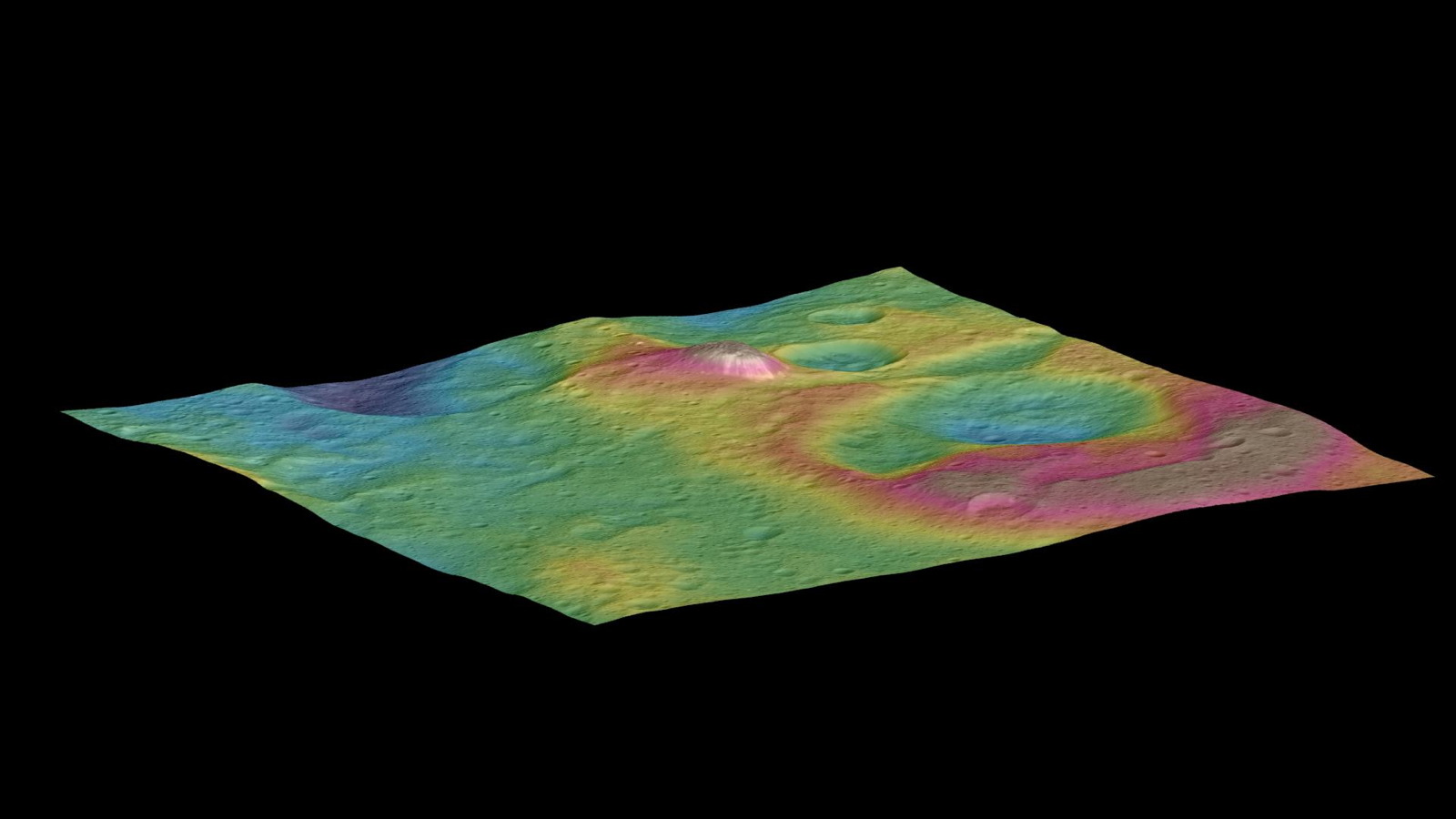
NASA's Dawn spacecraft provided image used to produce this view of Ceres featuring a tall conical mountain. Read the full story.
Behold, Ceres
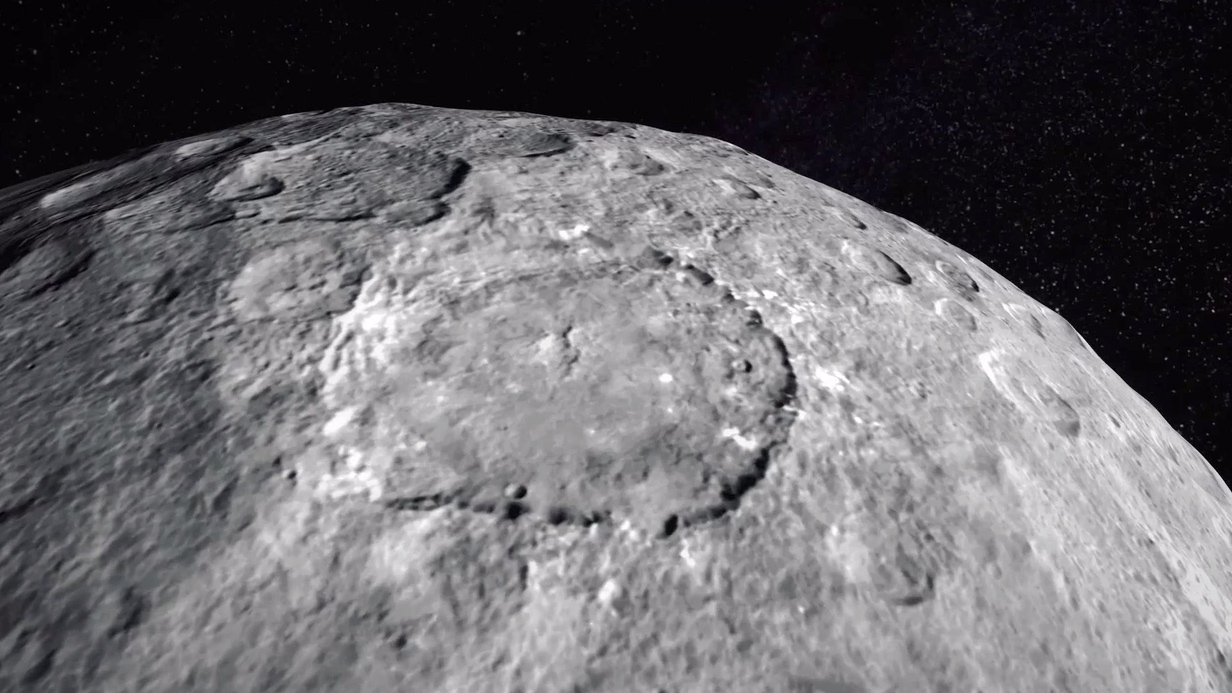
This amazing view of a crater on Ceres comes from a video captured by NASA's Dawn spacecraft while orbiting the dwarf planet.
Ceres Mountain Ridge
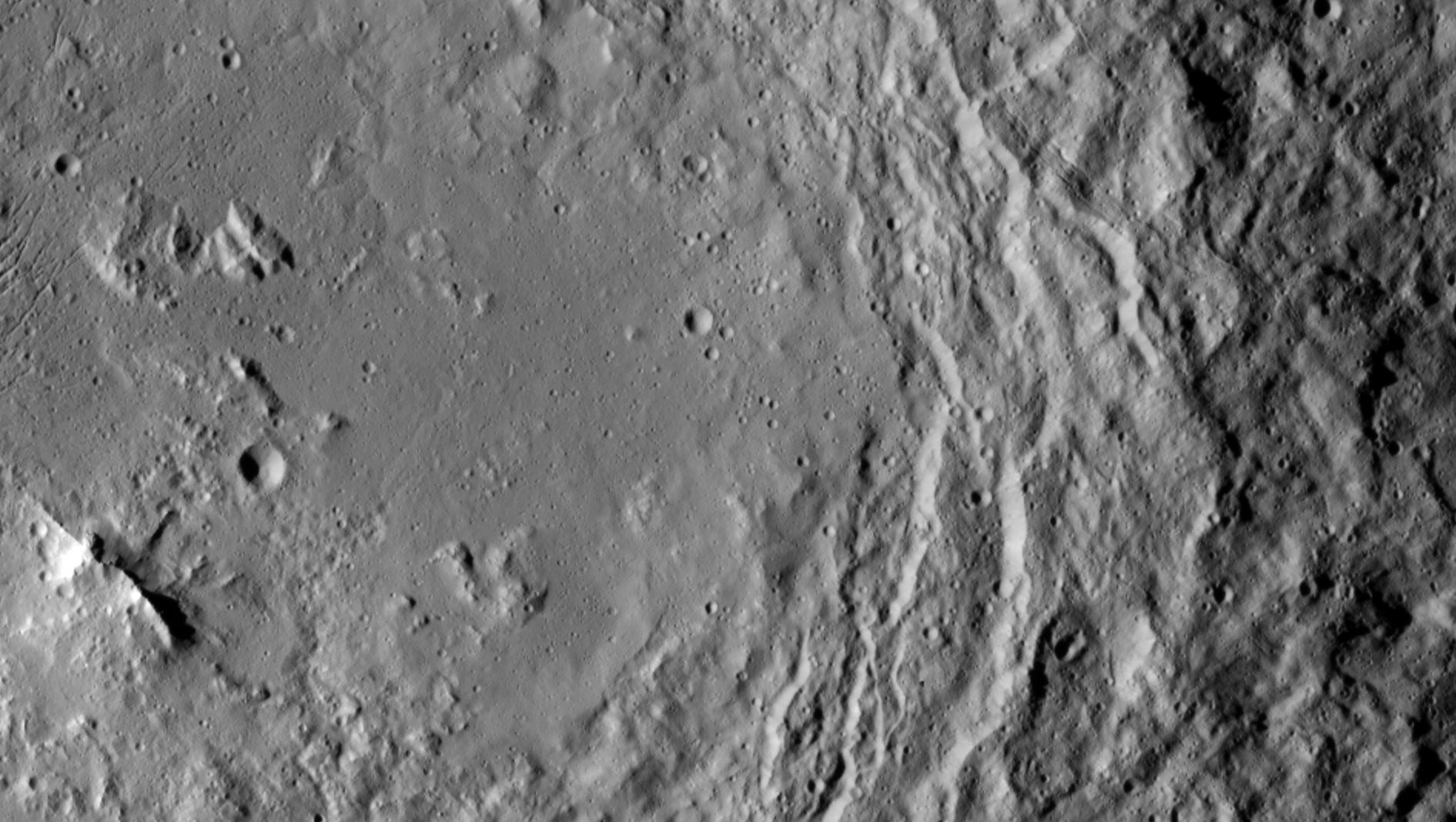
An image from NASA's Dawn spacecraft, taken on Aug. 19, 2015, shows a mountain ridge, near lower left, that lies in the center of Urvara crater on Ceres.
Ceres' Lonely Mountain
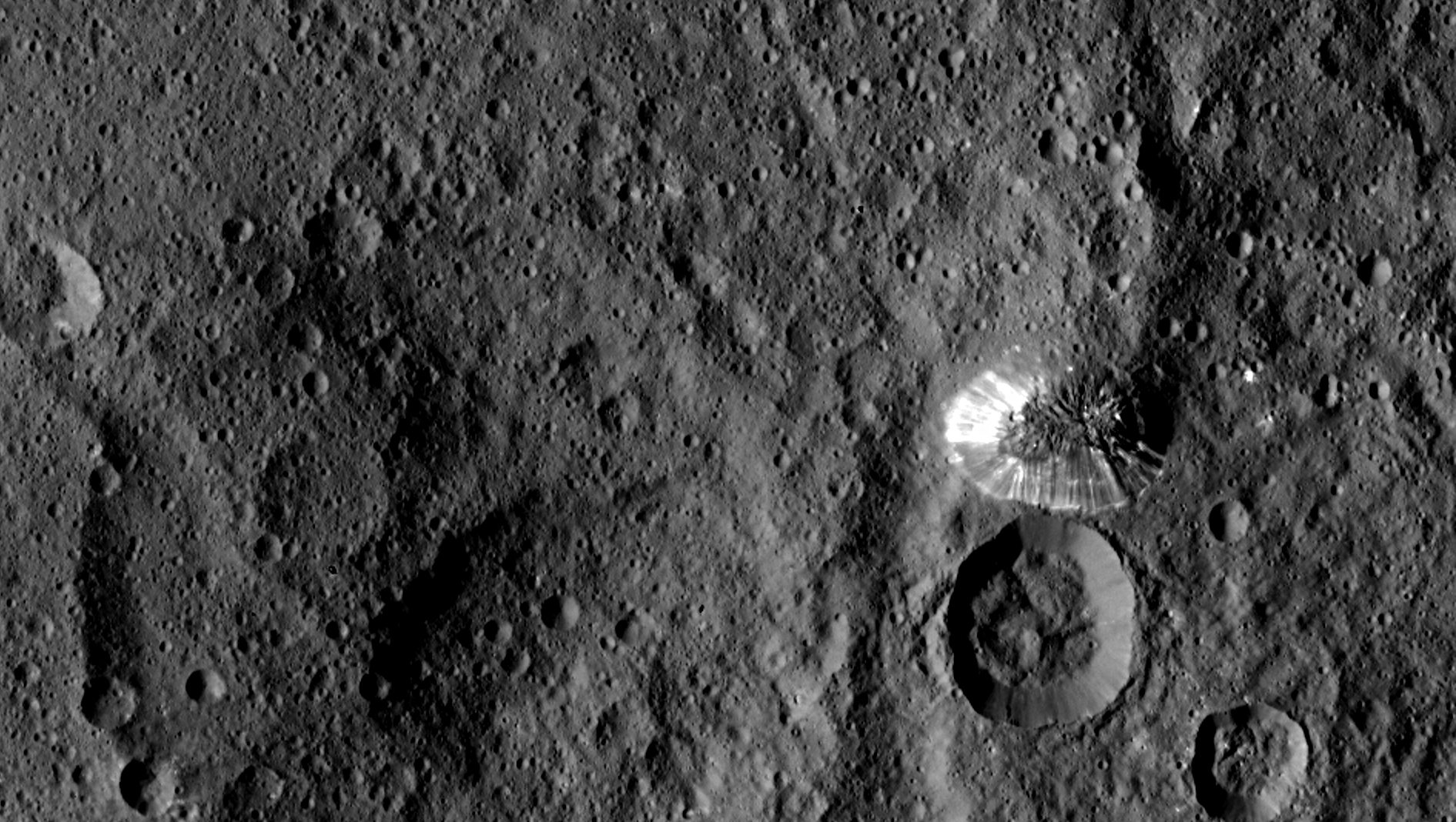
NASA's Dawn spacecraft spotted this tall, conical mountain on Ceres on Aug. 19, 2015, from a distance of 915 miles (1,470 kilometers). The mountain, located in the dwarf planet's southern hemisphere, stands 4 miles (6 km) high. Its perimeter is sharply defined, with almost no accumulated debris at the base of the brightly streaked slope.
Ceres Gaue crater
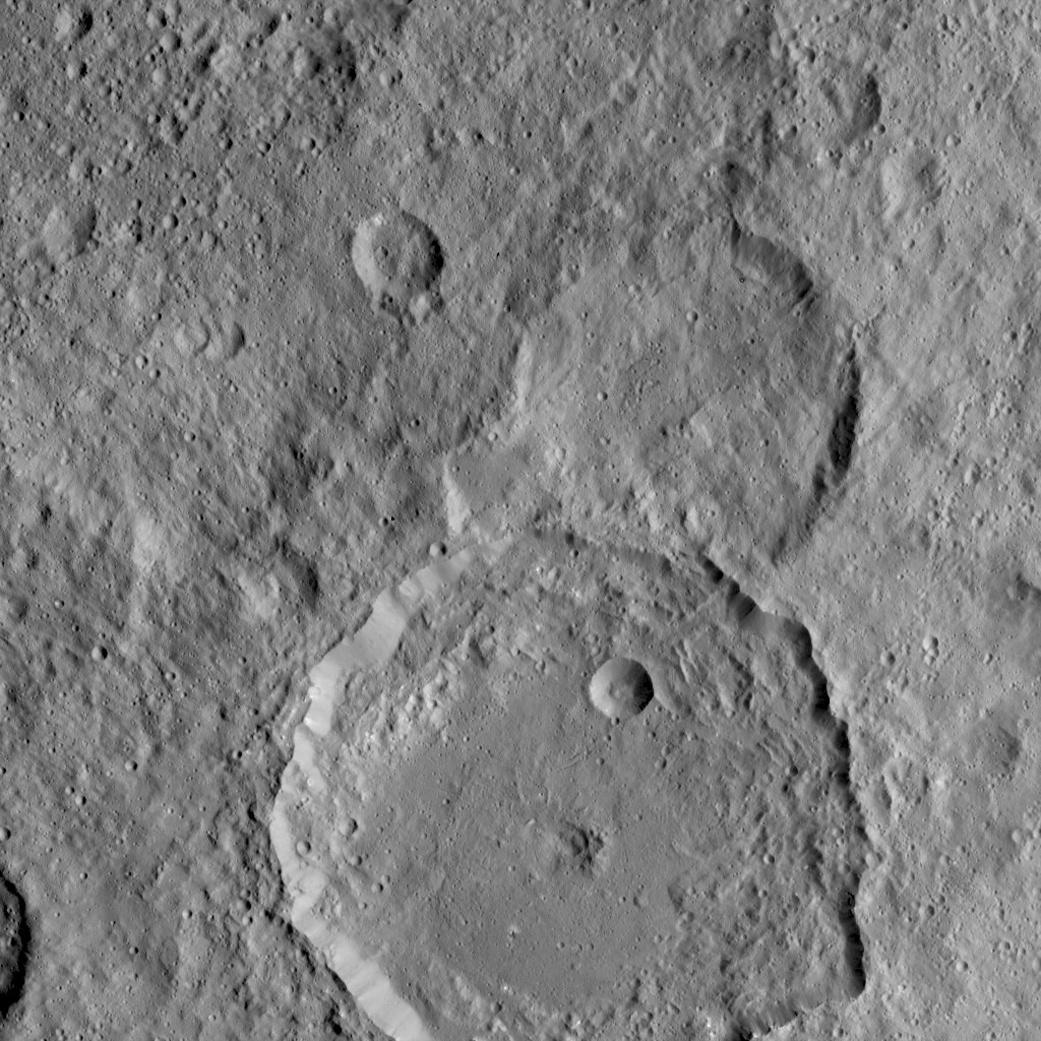
NASA's Dawn Spacecraft took this image of Gaue crater, the large crater on the bottom, on Ceres. Gaue is a Germanic goddess to whom offerings are made in harvesting rye. The image was taken on Aug. 19, 2015.
Dawn's Ceres Maps
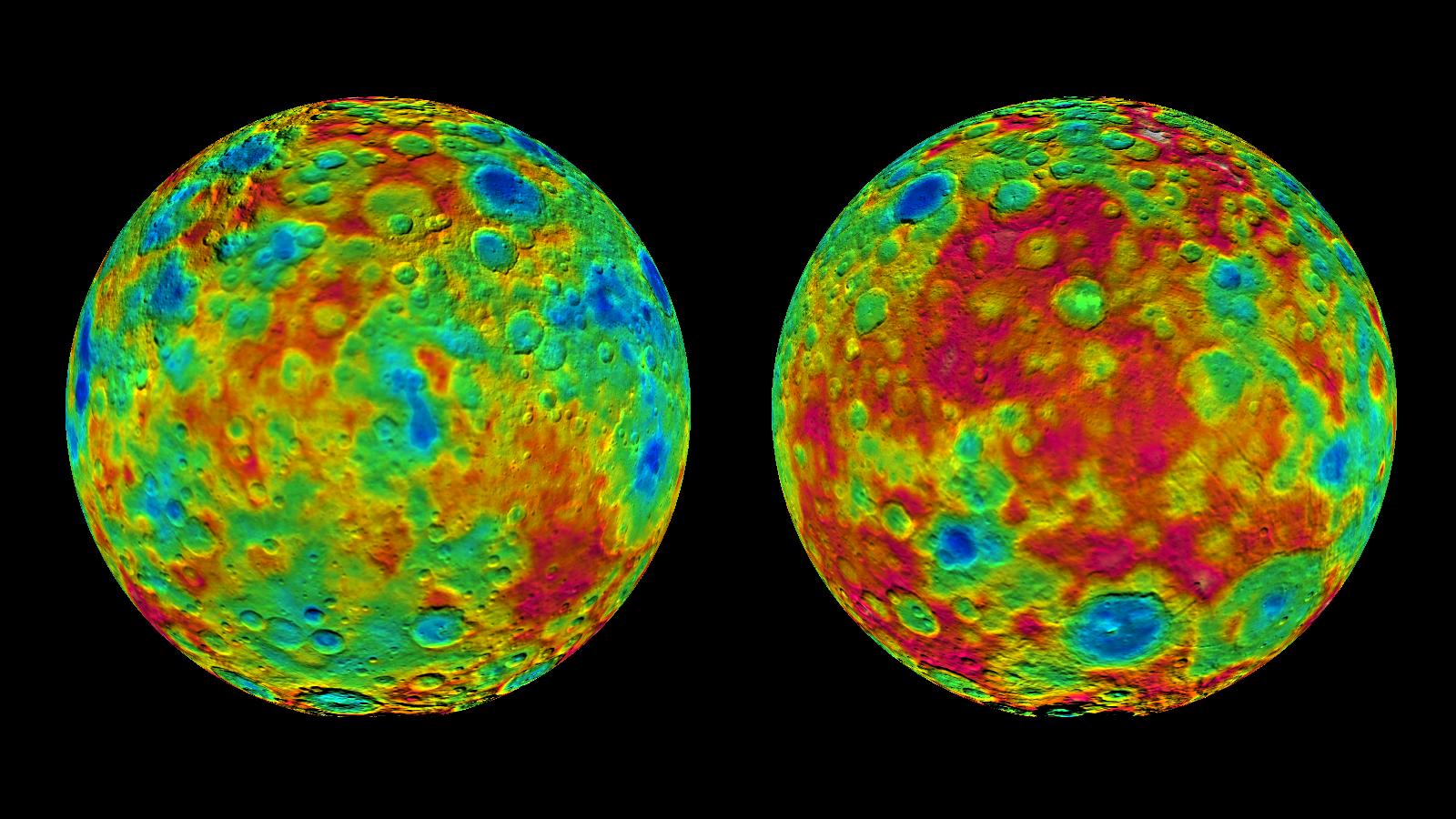
These color-coded maps of the dwarf planet Ceres were created from topographic data from NASA's Dawn spacecraft. The planet's surface has dramatic variation, with as great as 9 mile (15 kilometer) variation between tall peaks and crater bottoms. [Read full story.]
Ceres Features Get Names
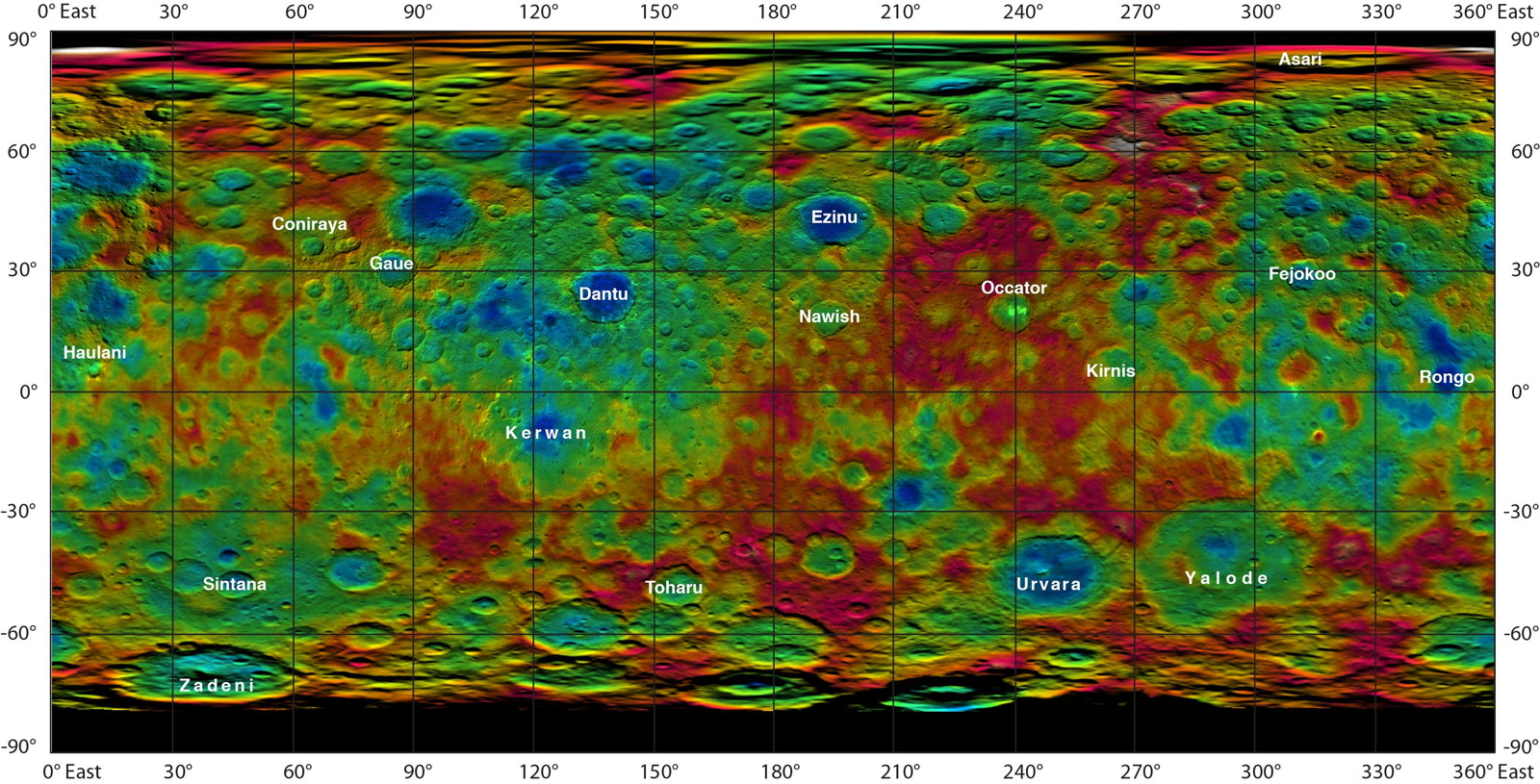
A color-coded map of dwarf planet Ceres' topography points out the names of its many features, captured in detail by NASA's Dawn mission. [Read full story.]
Get the Space.com Newsletter
Breaking space news, the latest updates on rocket launches, skywatching events and more!
Haulani, a Bright Region on Ceres
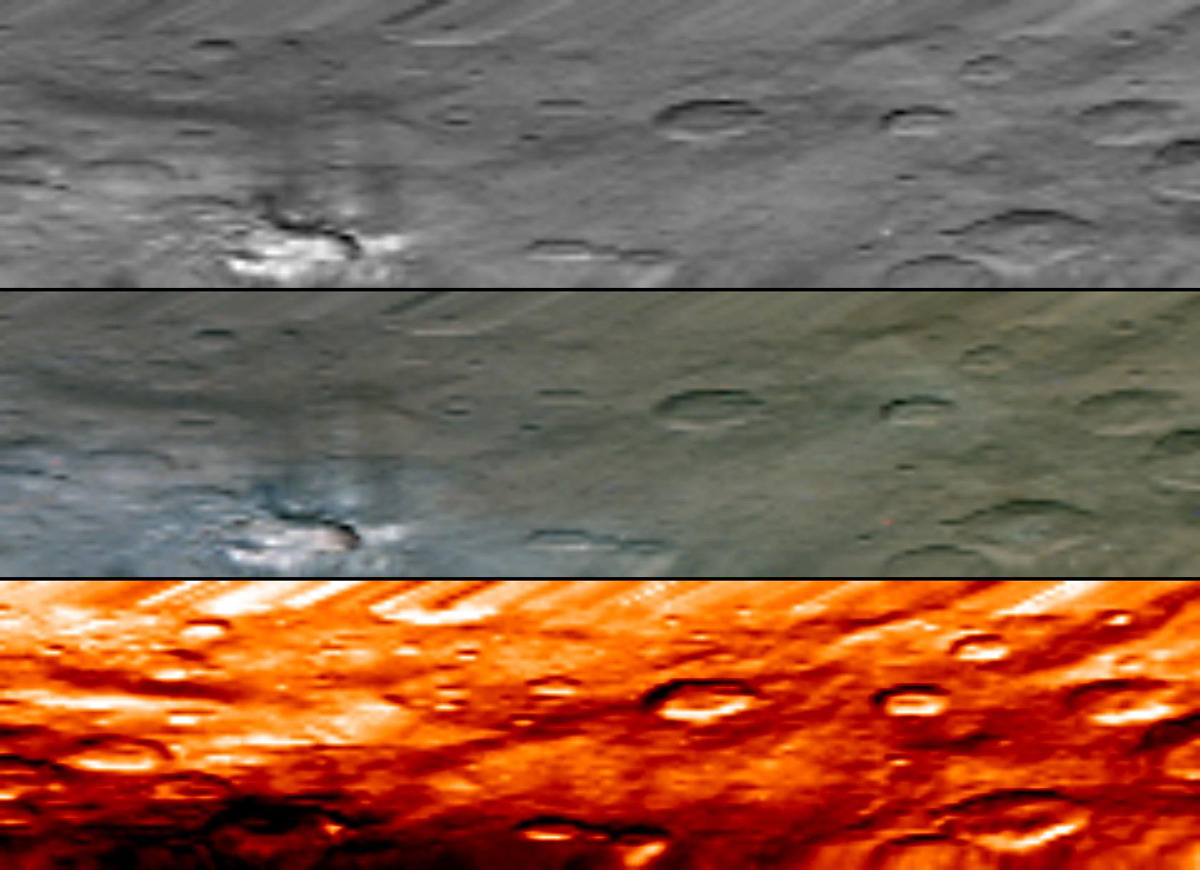
This visible and infrared image of dwarf planet Ceres shows Haulani, a bright region named after the Hawaiian plant goddess [Read full story.]
Bright spots on Ceres
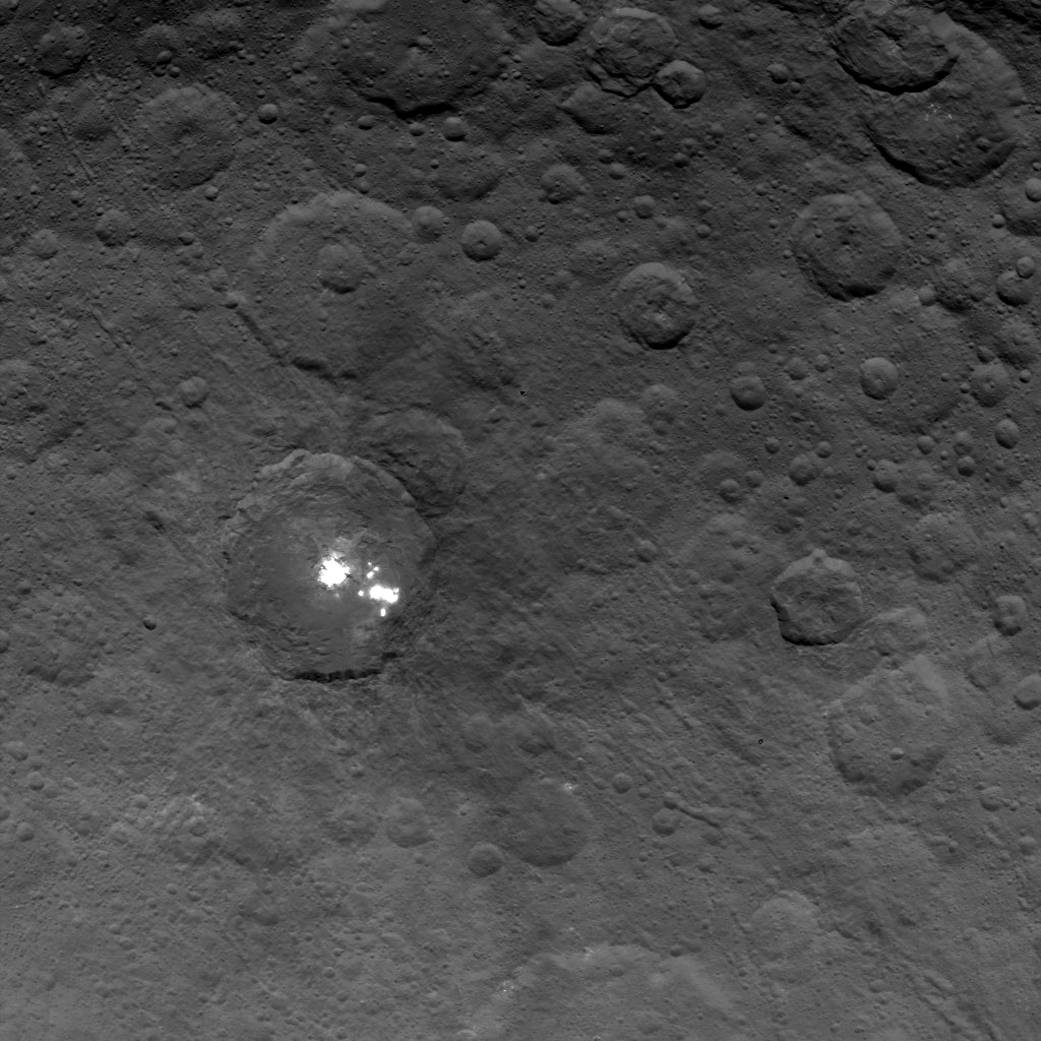
The brightest spots on dwarf planet Ceres are seen in this image taken by NASA's Dawn spacecraft on June 6, 2015.
Ceres' Northern Hemisphere in Survey
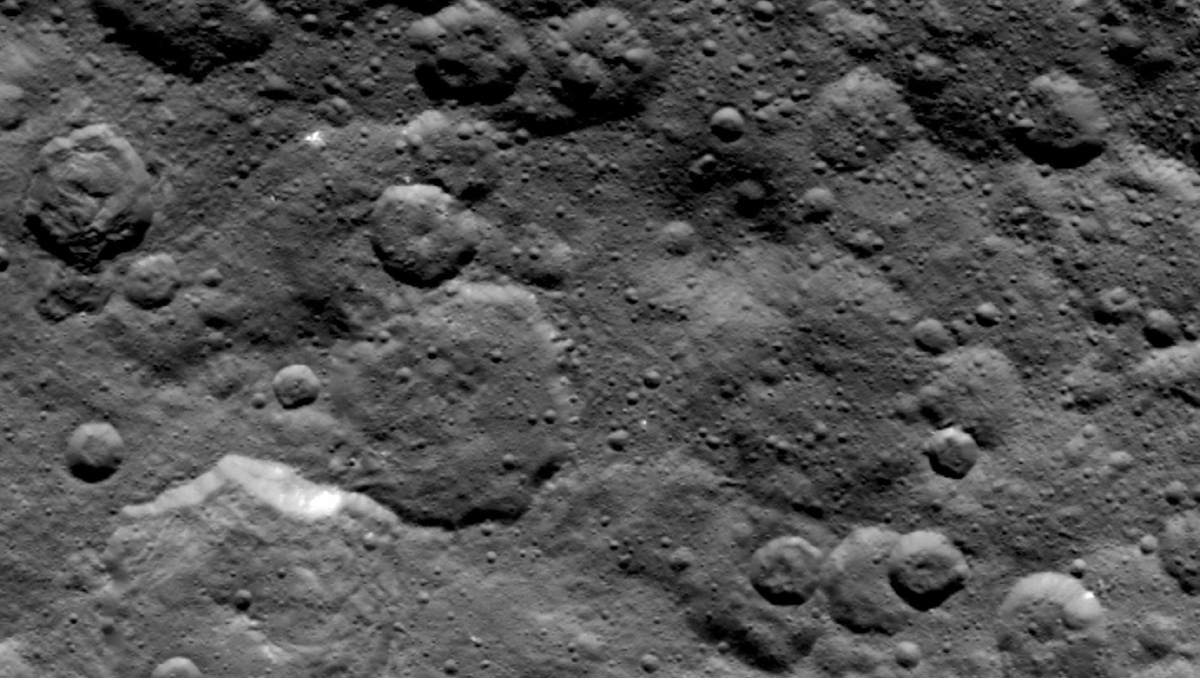
NASA's Dawn spacecraft obtained this image of craters in the northern hemisphere of dwarf planet Ceres on June 6, 2015, from an altitude of 2,700 miles (4,400 kilometers). Image released June 10, 2015.
Join our Space Forums to keep talking space on the latest missions, night sky and more! And if you have a news tip, correction or comment, let us know at: community@space.com.

Space.com is the premier source of space exploration, innovation and astronomy news, chronicling (and celebrating) humanity's ongoing expansion across the final frontier. Originally founded in 1999, Space.com is, and always has been, the passion of writers and editors who are space fans and also trained journalists. Our current news team consists of Editor-in-Chief Tariq Malik; Editor Hanneke Weitering, Senior Space Writer Mike Wall; Senior Writer Meghan Bartels; Senior Writer Chelsea Gohd, Senior Writer Tereza Pultarova and Staff Writer Alexander Cox, focusing on e-commerce. Senior Producer Steve Spaleta oversees our space videos, with Diana Whitcroft as our Social Media Editor.
